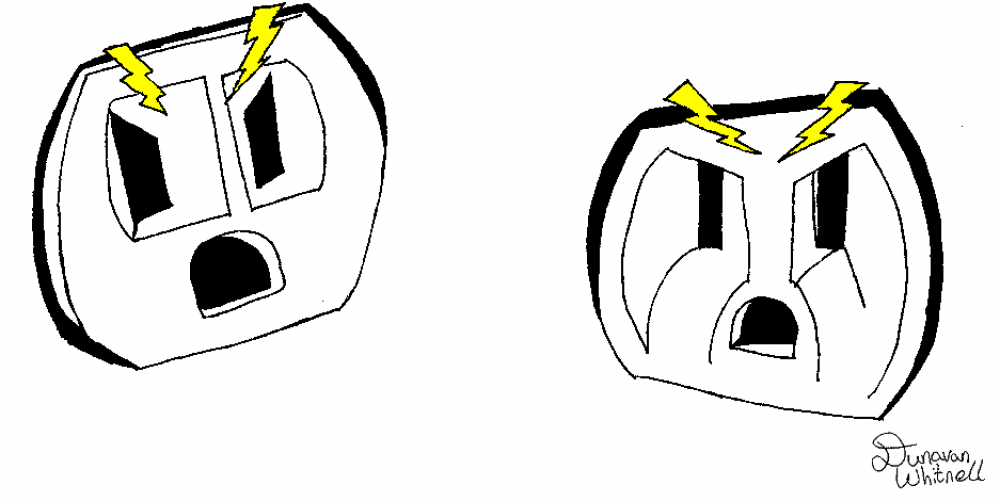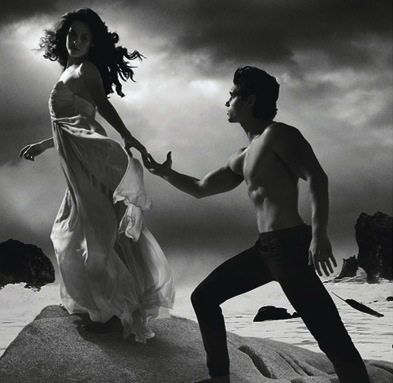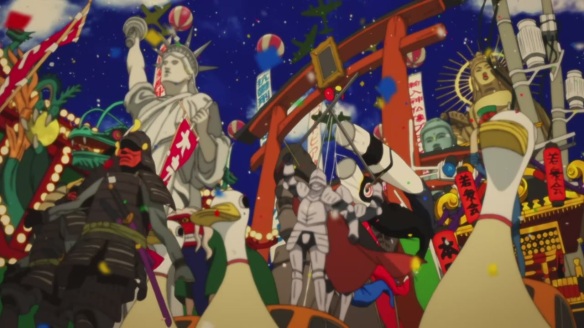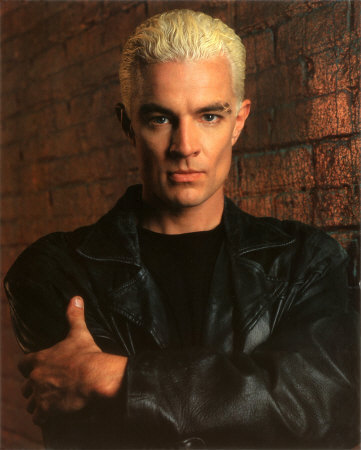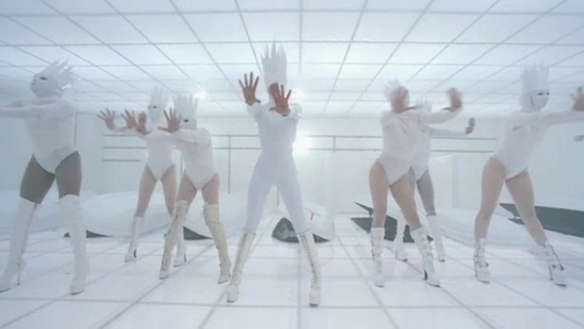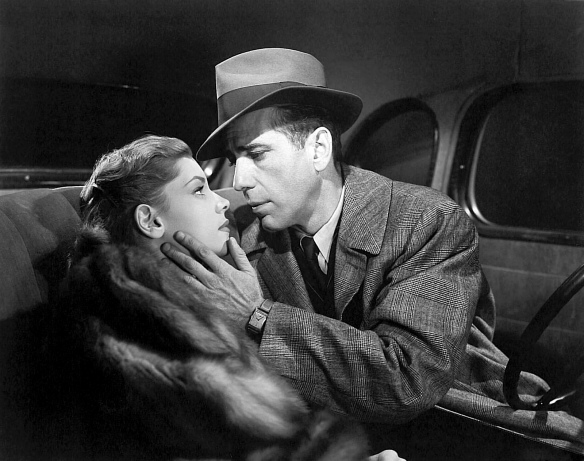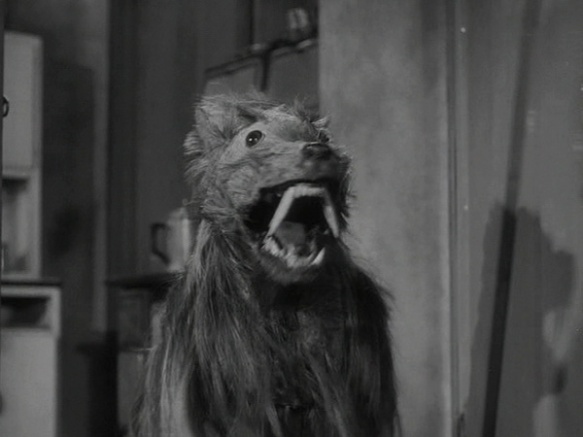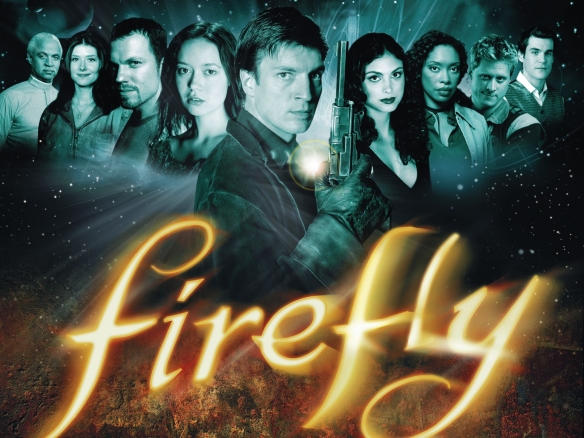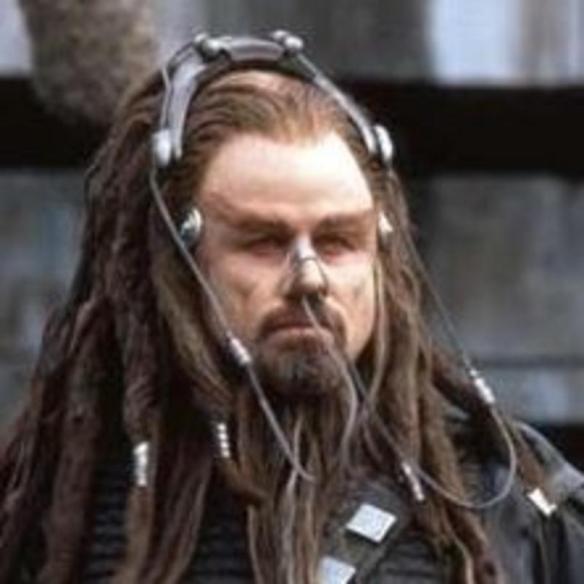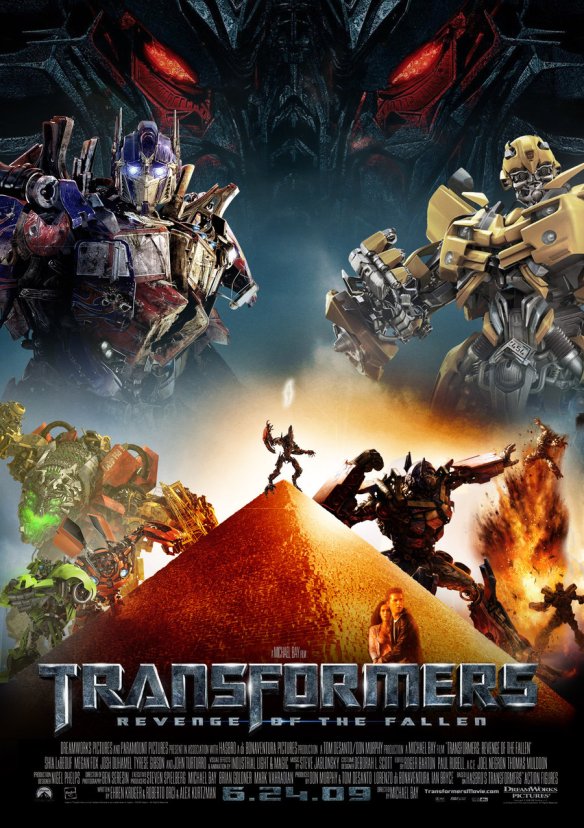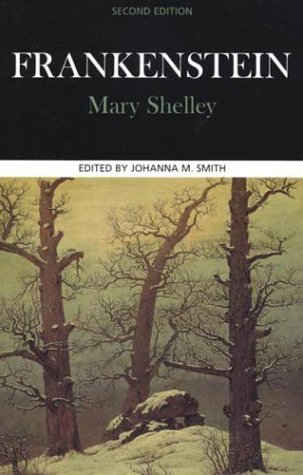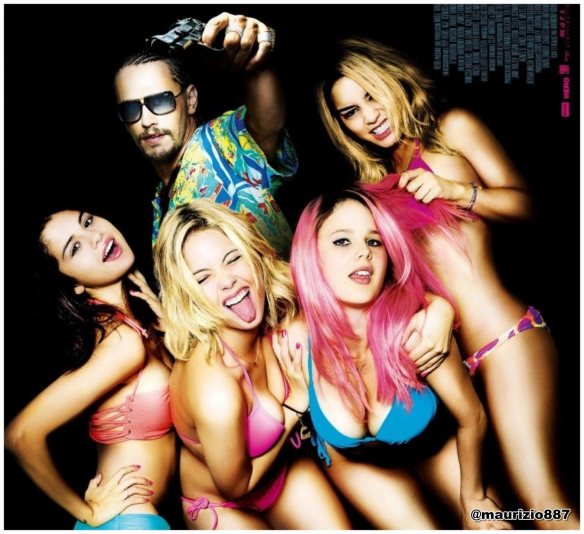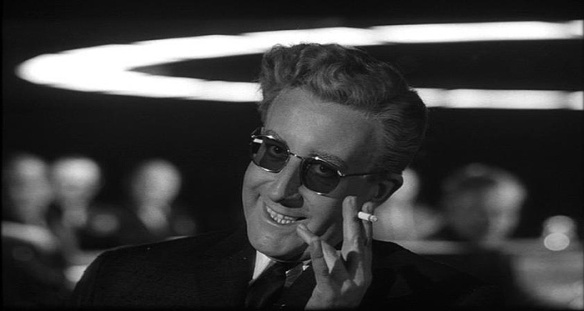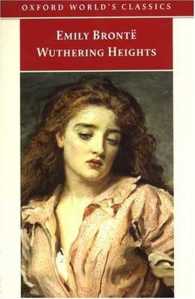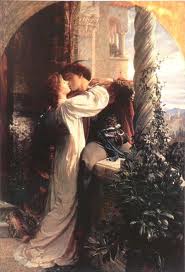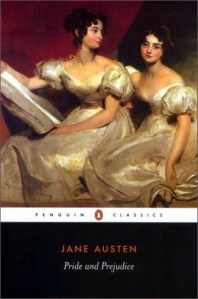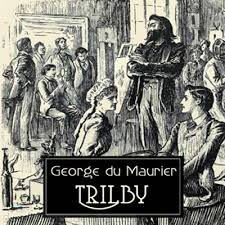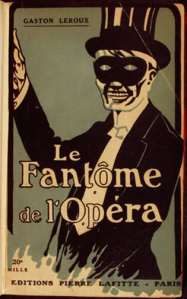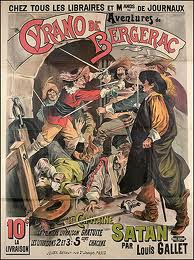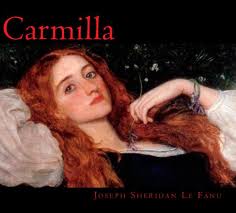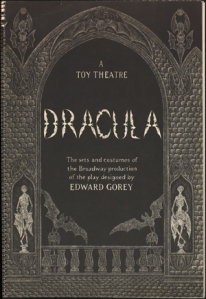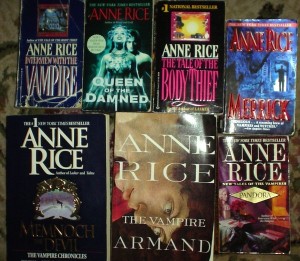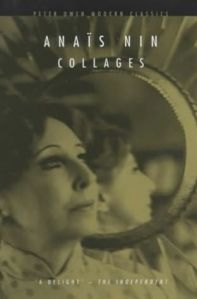For those of you who have lives and don’t obsess over film lineups, let me tell you something. 2013 kicked so much ass. It was a great year for film.
We had one of the most honest and compelling stories about slavery and race ever put on film. We had a love story about humanity’s tenuous relationship with technology and where that leaves us as a species. We had the Coens doing a music-based period piece. We had a visually spectacular (if screenplay-challenged) space drama that has literally transformed the way we can even talk about cinematography. Disney hit it out of the ballpark with their most cohesive animated picture of what people are kind of stupidly calling “New Disney” (but I’ll get to that later). And that’s just looking at the really obvious pics. Miyazaki was back. We had The Wolf of Wallstreet. Matthew McConaughey shocked everyone and made it like his big, bad year of the Matthew in Matthew land (seriously, who would have guessed?).
Blue Is the Warmest Color enchanted and shocked everyone. Man of Steel was, at least, hugely controversial in the tentpole community, dividing critics and audiences into raging fanboys of pure wrath. We had Frances Ha, A Touch of Sin, Nebraska… Sophia Coppola made a film, and so did Soderbergh.This year made us discuss civil rights, the human person, love, desire, and the fact that you may not actually be as talented as you think you are. Even our biggest financial hit was The Hunger Games: Catching Fire, which, despite being in a trend I really loathe (I keep trying to write a post about my problem with dystopia, but it’s not ready) was still pretty smart. But, this was the year that gave us experiments like The Act of Killing, and hard-hitting documentaries like Blackfish, and it marked the year former Disney stars joined with the guy who made Trash Humpers to recreate what I can only call a pop-music vision of hell!
And, from the looks of things, 2014, what with its Lars von Trier-ism and Wes Andersonianism, among other things, will be pretty damn cool.
But, in the midst of all this, there was a strange, mega-flop movie. A strange, strange, little trainwreck that I can’t really understand. It topped multiple worst lists for 2013. It was adapted from an infamously bad YA novel. It is The Host.
Spoilers a-plenty, folks!
–And my friend and I just had a conversation about this, so I’m going to blog about it for no other reason.
What is with this movie? Where do I even begin? For one thing, any movie so roundly hated by critics is, in my book, intriguing. Just how does one fail so greatly?
But, what was even more intriguing was the fact that there is a vocal minority who really love the movie. And, even more than this was the fact that I could not really look away from what I saw on screen. I heard from many critics that it was bad because it was utterly devoid of interest, and while I agree that the script is flaccid, there isn’t any real tension or drama, and nothing exactly happens, I wouldn’t say that it’s uninteresting. It’s too awkward to be uninteresting, like watching someone deliver a really bad speech, or being stuck in an elevator with a sobbing stranger.
For the apparent majority of the world who did not see this movie, The Host is a film with a glorious 8% approval rating on RT (no, really), and follows the story of Melanie. She lives in a prettied-up, typically YA version of the Invasion of the Body Snatchers universe, where aliens have come down to earth and done the whole body-snatching bit. But, instead of pod people and scariness, we have ancient, glowing starfish creatures from beyond worlds and a whole lot of meh. The glowing starfish aliens have inhabited human bodies and ended all conflict, resulting in peace and cleanliness, a situation which never ever makes the heroes question humanity or free will. Seriously, it’s like if in A Clockwork Orange no one ever really questioned the part about the Ludovico Treatment that stopped Alex from killing and raping, and therefore gave us a meaty moral quandary to begin with. Kind of hard to ignore that aspect, once you bring it up, but it’s never addressed. In fact, once on earth, most of the aliens are pretty passive, even to the point of blindly believing one another like the characters from the rightfully-forgotten, utterly-stupid Invention of Lying.
But, Melanie, you see, is not alone. She is a heroic, baby-brother-saving, loving, kind, personality-free bundle of attractiveness, and she gets captured by the not-pod people. They put an alien in her head, an alien with the incredibly unoriginal name of Wanderer. But, Melanie, through the same specialness that stops Edward from reading Bella’s mind but never gives Bella any active personality traits, overcomes. She doesn’t vanish, and now we have two minds in one body, and Melanie is out to find the last of the humans while Diane Kruger-Javert pursues in her best Gap summer collection…
…and Wanda learns about love. Will Melanie get her body back? Will Wanda and Melanie ever understand one another? Will the survivors believe that Melanie exists or will they kill her for being a not-pod-person? Will little brother’s sudden injury make Wanda have to save the day like Lassie? And, more importantly, how will two minds in one body handle having two separate crushes on two hot boys? Whaa-whaa!
Yes, this is from the same author who brought you Twilight.
But, I’m going to try and be fair here. I think a lot of people just saw this as Twilight’s Invasion of the Body Snatchers, except with a love square instead of a love triangle. This isn’t exactly correct. And, I want to first say something about the infamous Stephanie Meyers. She is… about average. Really. In the demographic, that nebulous YA… thingy that everyone talks about, she’s nowhere near the bottom of the barrel. As a former librarian, trust me, there are so many worse books out there. However, few have become so ubiquitous and with so many obsessive fans, and without really offering a whole hell of a lot in terms of content or… prose style. It’s sort of become its own thing, outside of the whole paranormal love stories for teens trend, where you have people insisting that they are incredibly well-read for having obsessed over the series, (and fanfiction writers making their own horrific hits by adapting the story as a really lame erotic novel). So, while I understand the hate, and I really do, I think it’s sort of misapplied. A lot of people say that these books are terrible, but then go on to praise books that are just as bad, or even worse. People lament the lowering of reading standards, but then refuse to budge from this swamp of teeny romance adventures.
I leave you with this: If you A.) are reading great literature and find the influence of Twilight to be detracting from literary discussions, B.) a teacher trying to get students to read something else, or C.) a reader of highly intelligent children’s and young adult fiction who hopes to see trends change in favor of The Book Thief or Looking for Alaska, then you can complain. Although category C does not include readers of YA paranormal romance novels or thinly expressed dystopias that serve as a backdrop for love triangles.
So, that being said, I don’t hate Meyers as much as I get annoyed with ostensibly educated adults picking Twilight over Chronicle of a Death Foretold and The Unvanquished. Meyers is sort of incidental. And, for a writer who gained so much popularity in basically mainstreaming her subgenre, it’s actually admirable that she did somewhat mix up her formula. Which, she did. At least, judging from the movie. I haven’t read the book and don’t intend to.
I think part of what is facinating about the movie is that it actually has some interesting concepts. The story is about the emotional microcosmic effect of the Body Snatchers story, which could be interesting. The two minds in one body idea could have been very interesting, as well. There is a lot at stake for these characters, and how they grow to trust one another and what this might mean for them could be great fiction. There is a scene toward the end when Wanda (they do call her that) is going to sacrifice herself so that Melanie can be free, and the two become very emotional and call one another sisters, and this could be really moving except… we never see this. At all. All emotion is just told to the audience and we’re supposed to infer that it’s real.
This is why people say the movie is so boring. Which, technically, it is. The story takes a high-concept scifi plot, and it uses it to study these two characters and their relationship. It should be an intimate portrait of two literally alien minds finding unity, and not one that is out of place in today’s world. But, we never really get to see these characters at all. Bizarrely enough, the story is actually very much driven by plot, through some Hunger Games style tough-girl action, a cat-and-mouse pursuit, and other chase and action sequences. This is what propels the story and its changes, and the characters really only act or react based on these external forces. What is Melanie like? We hear about how strong and brave she is through others, and she does sacrifice herself for her brother at the start of the story. But, we only really get to hear about Melanie’s abstract goodness and see her do… things. But, what is she like? How is she strong? What is her personality? I have no idea. For that matter, what is Wanda like? She’s ancient and is supposed to have all this wisdom, but most of the dialog just sounds like two young girls getting catty, emotional, insecure, scared, or just exposition-dumping. Oh, and most of all, having crushes on OMG BOYS!
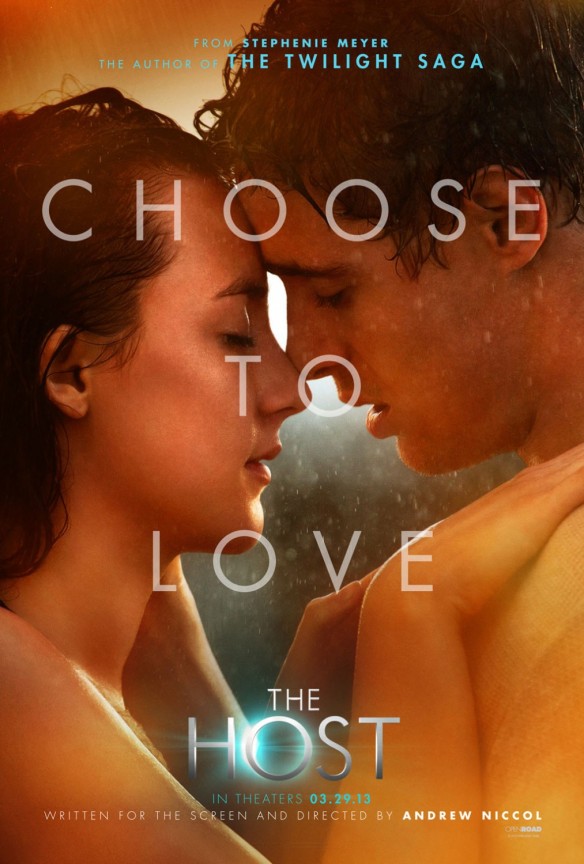
I wish you DID choose to love, instead of just telling the audience that you are in love. Would have been nice, since this is apparently a central theme… OMG BOYS does not count as a romance.
And that brings me to the next and probably biggest issue of this film. You know how some really high-concept movies chose to use an emotion or a sense, or maybe a framing device, and it just doesn’t work on screen. Take the scent scenes in Perfume: The Story of a Murderer. They’re awkward because the filmmakers can’t convey smell through the medium. I’m not saying it can’t be done, but these filmmakers can’t do it. Well, this story has a script problem that works like that. Melanie and Wanda share a mind, and so we are treated to a script which is dominated by Melanie and Wanda’s thoughts. And, for a film about their thoughts, it’s unfortunately not very interesting or revealing. Melanie doesn’t want to disappear, and she doesn’t want to do what the aliens want, and she doesn’t want Wanda to kiss her boyfriend. It’s not very revealing, and it sounds really funny to have this angry girl voiceover interrupting scenes with lines like, “It’s… crowded.” when thinking about how she feels with two minds. Wow, that’s really deep, Melanie. And, furthermore, this kind of writing always feels like it’s done by an amateur who thinks that her one-liners are so golden that they can replace any actual character development. Oh, snap! She said it’s crowded and she has two minds in her body! Ooooh, the brilliance!
But, the thing is, Melanie really isn’t that interesting as an independent person, either. Her scenes with her boyfriend are basically as follows: Escapee survivor Melanie runs into generically hot male survivor. He kisses her. She says that he must not have kissed anyone in a while. Next scene they’re together and an item. Then, she’s been taken. That’s basically all of her epic romance, and yet her memories of this romance are part of what make Wanda take her side. Why? Has she never taken over a body that kissed before? Wanda has taken over bodies before. Do they not have romance? Is that specifically human? What about the rest of the humans? Were their romances not romantic enough because they didn’t involve kissing on an abandoned sofa? What makes this romance special? Nothing! The story gives us nothing.
To illustrate, I, like all the many non-fans, really struggled with telling the difference between the two male love interests, Wanda’s and Melanie’s. I don’t remember one, single personality trait or attribute other than “kisses Saoirse Ronan” and “has hair”. And they both qualify for those traits. I THINK Melanie’s generi-boy was more angry at Wanda-ified Melanie than Wanda’s generi-boy, but that could have been the other way around because, in the end, they both have this weird romance thing going on with Soairse Ronan’s two-minded body. Wanda’s boy even asks if Melanie can step aside, aside in her own body, so that he can use her body to have an intimate moment with Wanda. The moral quandaries present in this are never, ever addressed, other than Melanie feeling jealous when her boy kisses her when it’s actually Wanda. The getting of boys is more important than the ethical issues.
That is basically the story. Melanie convinces Wanda to go with her so that Diane Kruger doesn’t put Wanda in a new body and kill Melanie, because Diane Kruger is a bitch in this movie. Oh, but her driven-like-Javert obsession and emotional outbursts that are totally unlike all the other not-pod-people hide a secret! Can you guess why this supposedly calm alien being would be so stressed out about an alien whose host is still there? What secret could that be?! Yeah, she has a host still there. It’s pretty obvious from the start, and there’s really no conflict about this. You just kind of know that this is the case, and then it’s revealed at the end and the audience goes, “Yup.” I don’t know if it was supposed to be a surprise, because they don’t dwell on it very long. It’s just kind of a thing that the filmmakers forgot about through most of the shooting.
Other than this pursuit, Wanda and Melanie find the survivors, led by William Hurt in his best Jeff Bridges impression. The story really just kind of fizzles out into… stuff. The people don’t trust her and want to kill her. For no apparent reason, Hurt lets her live. For no apparent reason, Melanie won’t let Wanda say that she’s still alive. She could easily tell Wanda things that only Melanie would know. Their lives are at risk. But, nope, she lets everyone she knows and loves think she’s dead, including her supposed one-true-love of this tale, and her beloved brother, because reasons. Maybe they are explained in the book, but not here. Then, people want to kill her, but then they don’t. I have no idea how Wanda gets a love interest, but it just happens. Melanie’s love interest kisses Wanda, and that makes Melanie mad, and somehow that tells love-boy that she’s still there, I think? I don’t remember how that worked. Eventually, they accept Wanda, but then the brother gets an infection on his leg because we don’t have time for character development. So Wanda and Melanie save the day by getting medicine from the aliens. Diane Kruger almost finds them, but doesn’t, but then she does, but then she fails and is sent away into outer space while her host is okay. Stuff just happens.
If you’re sensing that there’s not much of a central conflict, that’s because there isn’t. Most of the actions are not propelled by anything other than the assumptions people make about what stock characters should do. It’s sort of like the way fanfiction writers don’t need to provide their characters with motivation, because the characters come from a pre-existing source and the fans know how they will react in a given situation. This doesn’t work when you have original characters and they don’t seem to react at all, or at least not in a way that makes sense. And, the weird part is that this could be fixed. I think part of what is so fascinating to me, besides the way no one acts like a real person, is that the problems aren’t insurmountable. Melanie and Wanda should have more conflict, a Gollum-type struggle, except one that ends with this conjoined-twin style sisterhood. But, they opt to simply tell the audience what the characters are like and the interactions aren’t revealing. Often Melanie just says things like, “Oh no!” and other dull phrases we could probably just assume she would say. Wanda pouts, which is inconsistent with her character as an ancient, wise alien being, and says things like, “You’re angry when I kiss a man you do love, and you’re angry when I kiss a man you don’t. It’s very confusing.” Wanda, it’s confusing that you even love a different species, one which doesn’t look anything like you and has a much shorter life span and no personality, especially under these circumstances. Care to elaborate at all? We can literally hear your thoughts, and yet we don’t know them. Who is Wanda? She’s a collection of traits, but no soul, and her alien lifeform is LITERALLY called a Soul!
The conflict between the survivors and Wanda could also have been fixed. Wanda could have risked herself to save conveniently-injured-brother-who-always-needs-sacrificial-saving at the beginning of her meeting with the survivors, thereby earning their trust. It’s cliché, but it’s better than, “Oh, Wanda, we trust you now! Because feelings!” Diane Kruger could have been a better threat, maybe actually placed them in real danger, maybe been believed by the other aliens instead of being kind of brushed off and impotent. The stealing missions (a weirdly minor plot point, considering that these serve as our action scenes for a lot of the movie) could have had higher stakes, killed characters we remembered, put people in grave danger. The brother could actually be torn up about seeing his sister but not having it be her, and that could be an emotionally strong part of the story. Instead, he just kind of exists so that Melanie can have someone to save, and then Wanda can have someone to save. The scene where Wanda gets the medicine could actually have some stakes. The aliens could not believe her. She might have had to sneak inside. She might have had to get past some security. There could have been tension, but instead it just works itself out perfectly and everyone goes home, and little brother is okay. Everything just resolves itself too easily.
And, this brings me to my biggest problem. The emotional core of the story should be Melanie and Wanda’s relationship as… I guess brain-sisters. They call each other sisters, and supposedly love one another by the end. I guess. I mean, they say they do, and that’s what counts for character development in this movie. People just say Melanie is strong and special, and Wanda is wise, and that people are in love, and that romances are powerful, and that Wanda and Melanie love one another. But, they never really show it. We just have long, drawn-out shots of the desert, which is probably one of the cheapest things a scifi drama could show us. Blade Runner gave us a neo-noir, space-age, Tokyo-influenced city.
Star Wars gave us multiple planets and space wars, and giant space stations that look like evil moons, and Cloud City.
2001: A Space Odyssey gave us innovative space effects, prehistoric lands, new technology, and mind-bending visuals.
Paprika took us inside dreams.
The Host shows us where they filmed Gerry. Adventure, ho.
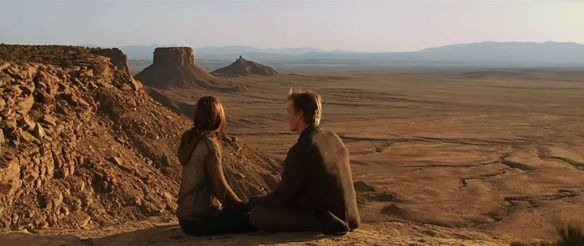
And before you say, “But Invasion of the Body Snatchers doesn’t take us to new worlds!” remember: THAT was a horror movie. It relied on humans not knowing what was happening and then finding out the truth. This is pure scifi, post-invasion, and does include scifi elements in technology and visuals. It has no excuse for being this lazy. Also, Invasion doesn’t look lazy. Both movies. They’re both more visually interesting.
No, the problem is that at the end Wanda is going to give up her life for Melanie. It should be a really sad scene, but the weight is lessened by the lack of character development. Still, Ronan is a good actress and conveys real emotions at this scene. It has some genuine stakes here. People aren’t just doing stuff that fizzles out and becomes nothing. This is the big, emotional core, the conflict, the ethical dilemma. I thought, “Okay, movie. I didn’t like you, but this is something. You’re being daring. Way to go. Life isn’t a pretty package where everything resolves itself, like in Twilight. Actions have consequences and reactions, and the consequences of Wanda’s epiphany about humanity and the value of life means that she cannot also have a teeny-fantasy ending with a cute boy and all and… no.” Nope, at the very end we have deus ex random-dead-hot-chick, and Wanderer gets a new body without any moral obligation to the previous owner. Nevermind that her boyfriend is apparently okay with making out with the dead girl they had just moments before. Yeah, that’s not creepy. At least Wanderer can have no consequences or emotional stakes. And, hey, good thing that corpse was hot and all. And of age. And not elderly. And female. Bam! Conflict gone! And in the end they find other aliens and humans living happily together as they have learned to do, and it’s all going to be okay.

Thank God we had this dead Emily Browning on hand, or else Wanda might have had to live in a yucky, not hot body! That’s the real tension here, folks.
Now, I actually do like one part of this story. I like that in Meyer’s books she foregoes killing all the baddies to solve everyone’s problems. I think that killing all the baddies is a horrible lesson for young readers, especially when creating a group or race that is just bad and okay to slaughter.

They’re ugly and not obviously Western, so kill them with impunity. Slaughter their families. Who cares?
I like that the aliens are just kind of confused and living as they know how. I like that Wanda is good. I like that most of the aliens are not as obsessed as Diane Kruger. I like the message of peace. But, Meyers doesn’t know how to express this message in a way that still retains storytelling drama. The Twilight “Saga” builds up to a climactic battle that just kind of fizzles out, and our protagonists never actually have to work for their happy ending. In The Host, Wanderer doesn’t die, the alien’s peaceful reign is never expounded upon, how aliens and humans can live together if aliens have murdered most of humanity (at least their minds) is never explained. At one point in the story, Wanda discovers that humans have been cutting out aliens and killing them, in order to free the human hosts. But, after a brief emotional breakdown and a, “How could you?” moment, that’s resolved. People say sorry, and that’s it. Wanda has literally been living right next to a room where her people are being cut apart, and she pretty quickly understands. Conflict isn’t important. It’s just kind of left alone, and we’re not expected to care because the cute girls got the cute boys in the end.
That is Meyers’s real interest: her romantic fantasies. That’s her focus, that’s the cause of all character motivation, and that’s what interests her. And, sure, it’s okay to be obsessed with young romance above everything else. If you’re young. And have a major schoolyard crush. And are Tina from Bob’s Burgers. Otherwise, grow up, writers and audiences. You give us ethical dilemmas and ideas, but you leave us with OMG BOYS! That isn’t good storytelling. That’s Tina’s erotic friendfiction.
Like Tina’s stories, this is more about how cute people are and how much they want to kiss (or, in Tina’s case, pinch butts). This isn’t even a romance, as it tells us nothing about the nature of love. This is a middle school rush of hormones.
The story alone, however, isn’t why this is awkward. It is a huge part, true. Meyers does like to forego all storytelling in favor of cute young people making out, and the alien invasion becomes backdrop for another of her weird romantic fantasies. However, the way the movie tells the story is also very strange. Like I said before, the voiceover is unintentionally funny… until it becomes annoying. Melanie and Wanda never seem to say anything very important or interesting. But, beyond that, we have a lot of scenes where the director just cuts back to Diane Kruger looking intense and wearing all-white clothes. I guess this is to remind us that she still exists, since her threat of pursuit is pretty unevenly handled. So, many of these cut-aways are just pointless shots of Diane Kruger in the desert. However, important emotional scenes and character development are rushed over in favor of explaining how the survivors grow wheat and… more shots of the desert.

“I’m still in this movie, right? Do I have a scene? No? Okay. Send my paycheck. I’ll be in my trailer drinking campaign and waiting for the next time Tarantino calls me.”
And this is another thing. This movie looks terrible. I mean that in the extreme. For some strange reason, I have heard fans say that this movie is beautiful, but I think what they mean is that the actors are beautiful. Or, maybe they are so used to sloppily color-filtered, CGI explosions a-la Michael Bay that they are actually enchanted by clear imagery and takes that last longer than two seconds. Or maybe they have seen every previous film in their entire viewing history on a very small cellphone and only now have witnessed a movie on a big screen? I have no idea, because the movie does not look good. The director is Andrew Niccol, and he’s not a stranger to directing scifi. He did Gattica, and he wrote and co-produced The Truman Show. But, this film just falters. The use of the desert feels beyond cheap, never even exploiting the dramatics of the landscape, and the cave sequences look like the cheapest and least believable sets.
They are so boring and uninspired, and never once reflect any of the interest or even visuals of being inside a cave. It looks like of like a play structure in a dinosaur-themed amusement park, but without dinosaurs. It looks like it was thrown together in a week with some plaster and spray paint. The most interesting things that we see are wheat and wheat production, and some glow-worm things. None of this is interesting, and the GC moments feel very obvious. The flashbacks are shot in this corny, golden light, so swoony that you’d be forgiven for thinking a freeze-frame was the cover of a romance paperback.
Furthermore, the pacing and editing are so listless that many of these scenes feel like they should just be cut. They don’t create atmosphere, because we aren’t seeing anything all that interesting (other than a very cheap shooting location and a very cheap set), and they do nothing to further the plot because there is no conflict.
Now, I love a good, low-fi, low-budget, little picture. And, if the director wanted to make that, that could have been interesting. But, these movies, like, say, Wendy and Lucy or Wristcutters: a Love Story or a Dogma 95 production must rely on a strong understanding of visual language, and powerful emotional and/or intellectual cores that keep the viewer invested in the piece. Wendy and Lucy has beautifully composed shots and a gritty, unrelenting realism that propels the plot and heightens the emotional outcome.
Wristcutters uses its minimal special effects to a quirky advantage, to create a world just off-kilter enough to me fantastical, and also has a snappy, smart, funny script.
The Dogma 95 movies, and semi-Dogma films (I don’t always know all the rules) follow a specific aesthetic code and use their low-fi look to create an intentional effect meant to force viewers to question and contemplate the moviegoing experience.
If The Host wanted to be a small picture, it needed to be much smarter, tighter, and more emotional, and actually do something with its technique, instead of mime the action sequences and romance scenes of other movies.
I kept thinking that the book must be really short and so the director didn’t have much story to work with and had to fill in the gaps with scenery. However, it turns out the book is enormous. I wondered why the director would spend so much time on nothing at all when there is so much book to cover. Then, I remembered it’s a Meyers book, and that means probably 800 pages of story are devoted to the protagonist whining and to descriptions of hot boys. Because she really is Tina Belcher.
So, with a movie this bad, why do I find it so interesting? I think, in part, is how the concepts really should be so much better than they are. I like the paranoia of the original and 1970s versions of Invasion of the Body Snatchers, so it stands to reason I would like to hear a new take (just… not this one). However, I also just find the awkward choices really intriguing. Why are all the conflicts resolved so quickly? Why isn’t there more tension or emotion? Why the voiceover that doesn’t actually tell us anything important about the character and yet never shuts up? Why cast two male leads who look so much alike? Why is the store just called Store? Did the aliens change it? Why? And, what is the tone supposed to be? It’s not romantic, because we don’t get enough development of our characters, and they don’t have any chemistry anyway. It’s not an action movie, because there is no tension. It’s not a character piece, because there isn’t any character development. It’s not really scifi, because it doesn’t explore its concept so much as create a reason to put two voices in Ronan’s head. It’s not realistic, however, as most people behave in a truly bizarre way, dictated more by what the plot just says they must do than by any natural action. Melanie needs more anguish over her helplessness, more conflict with Wanda, more passion and drive, and, for the love of moviemaking itself, a personality. Her romance needs to have more development so that it feels romantic, since it is what drives Wanda to action. Wanda needs to seem more like a wise, interstellar traveller and ancient being, and less like she has amnesia. She needs more conflict with what she believes is normal and right, and her new connection with Melanie, and she needs a lot more conflict when she finds out that her race is being killed by the survivors. Also, her interspecies romance must be explained and, again, be romantic. I’m not against love stories, but if this is a love story, give us love. I don’t want to see schoolyard crushes, and I don’t believe that an ancient glowing starfish from deep space would have such a crush. And, the survivors need to qualify just why they decide to trust Wanda. And Melanie needs to qualify just why she wants to be kept a secret, even at risk of her own possible execution.
I think this movie makes me want to fix it. That’s my best explanation for why it fascinates me so much, other than the uncanny valley feeling of watching actors portray totally unhuman emotional responses. I think this movie makes me annoyed because I think there is a need for this kind of story. I think scifi needs to be able to look at the interpersonal and the human, as well as the high concepts and imagination. I think that young adult stories need more messages of peace and integration, and solving problems through unlikely but gentle solutions. Sometimes the gentle touch really does solve everything. It can happen in real life. But, the story needs someone to tell it who is not obsessed with boys. This OMG, BOYS motif in YA fiction is really irritating. Just having cute boys around is not in and of itself a love story, and certainly not enough to carry a novel or a feature film.
Unless you’re Tina Belcher.
Outlit C.
